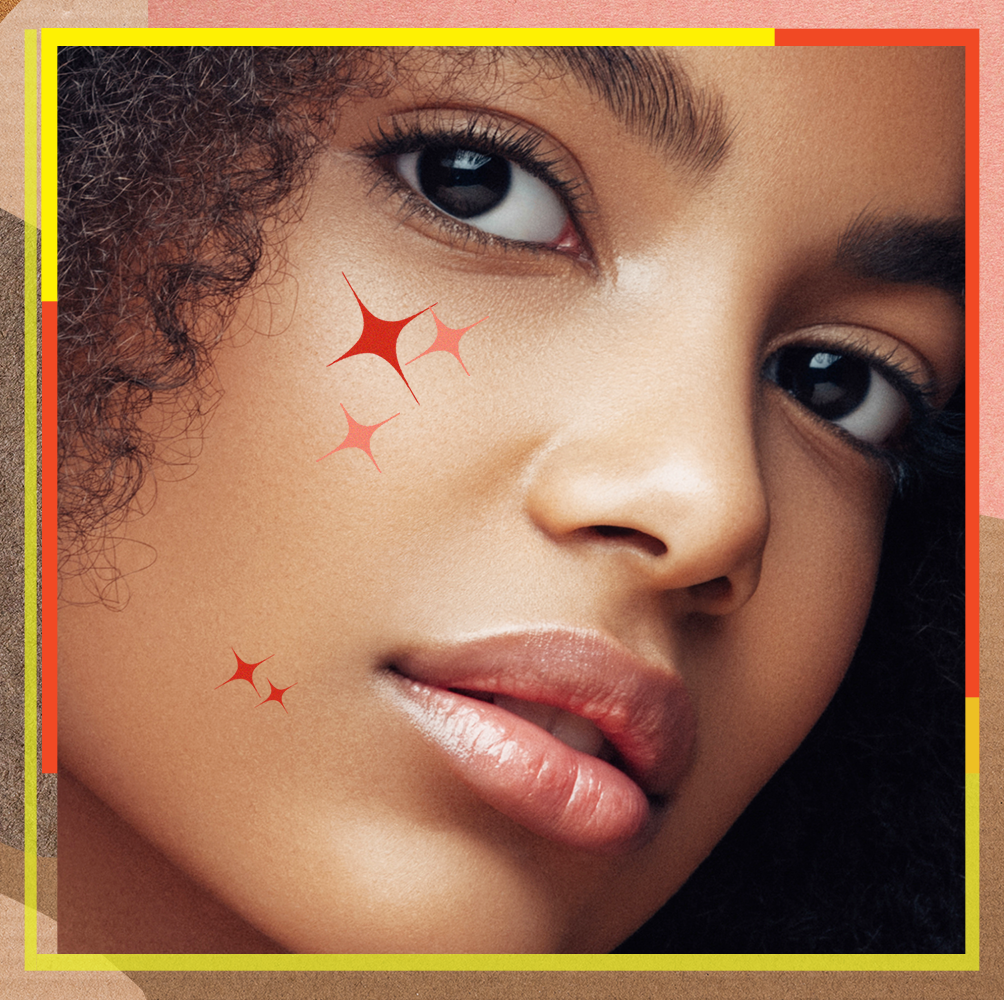
Morgan McMullen / StocksyGetty Images
There’s not always a clear-cut cause for acne. From lifestyle habits and environmental stressors to hormonal disorders and genetics, one (or more!) factors could be triggering your breakouts, says New York City dermatologist Joshua Zeichner, M.D. But certain characteristics, like the location and type of your pimples, can be key when it comes to nixing your zits.
Match your acne pattern, blemish type, and pimple count to one of the options below, then read on to see what could be causing your issues, whether or not you need to see a doctor, and what prescription drugs or over-the-counter (OTC) products may help keep breakouts at bay.
Small Pimples Along Your Hairline
If your pimples are super close to your scalp, they could be caused by pore-clogging ingredients in your hair products, such as isopropyl palmitate and certain mineral oils and waxes. Switch out your usual hair-care regimen for products from Seen, a non-comedogenic line developed by a dermatologist. It’s free of known irritants and pore-clogging ingredients, and formulated with a chamomile derivative known for its skin-soothing properties.
Multiple Pimples on the Lower Half of Your Face
Zits along your chin and jawline are an indication that your acne may have a hormonal component, according to Dr. Zeichner. For that reason, it’s best to visit a dermatologist. He or she may suggest topical antibacterial treatments and/or oral drugs, such as antibiotics; spironolactone, which blocks receptors for hormones that trigger oil production; a birth control pill that can help balance hormone levels; or isotretinoin, a drug that works on multiple acne causes at the same time.
Several Blemishes on Oily Skin with No Discernible Pattern
Mild blemishes all over likely don’t have a hormonal component, but could instead be caused by dirt, oil, and dead skin cells that clog up your pores, leading to comedones (i.e. whiteheads). Try switching out your regular cleanser for one with micronized benzoyl peroxide, like this one from Differin, which penetrates skin to absorb excess oil and kill acne-causing bacteria.
Several Blemishes on Normal to Dry Skin with No Discernible Pattern
If you have mild blemishes all over, but your skin is normal to dry, the zits are likely still caused by clogged pores, but your treatment should be different than that of your oily-skinned friends. Swap your regular cleanser for one with the active ingredient salicylic acid (we like this Aveeno option), which thins sebum and has antibacterial properties, but tends to be less drying than benzoyl peroxide.
Multiple Blemishes That Form Cysts and Have No Discernible Pattern
If your acne is severe and you’ve tried an OTC product for at least a month with no improvement, it may be time to see a dermatologist. If the doc determines that your acne doesn’t seem to have a hormonal component, he or she may prescribe a topical treatment with the active drug tretinoin, a vitamin A derivative that helps clear pores. Depending on your skin type (dry versus oily) your derm could recommend Altreno, which comes in a moisturizing lotion base, while Retin-A-Micro comes in a lighter gel base.
Lone, Random Blemish
If you don’t have a chronic condition, you can cover pimples that come to a head with a hydrocolloid patch, which prevents you from picking and draws out fluid and impurities to speed healing. Some versions of these patches are infused with active antibacterial ingredients, like salicylic acid or tea tree oil.
For more stories like this, including celebrity news, beauty and fashion advice, savvy political commentary, and fascinating features, sign up for the Marie Claire newsletter.










